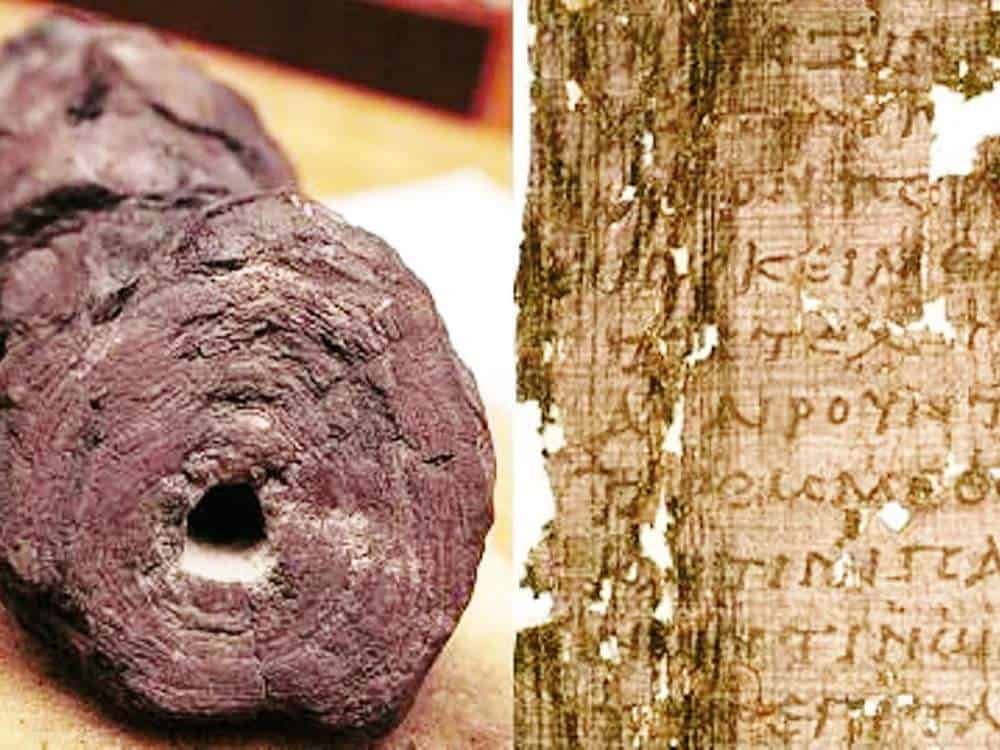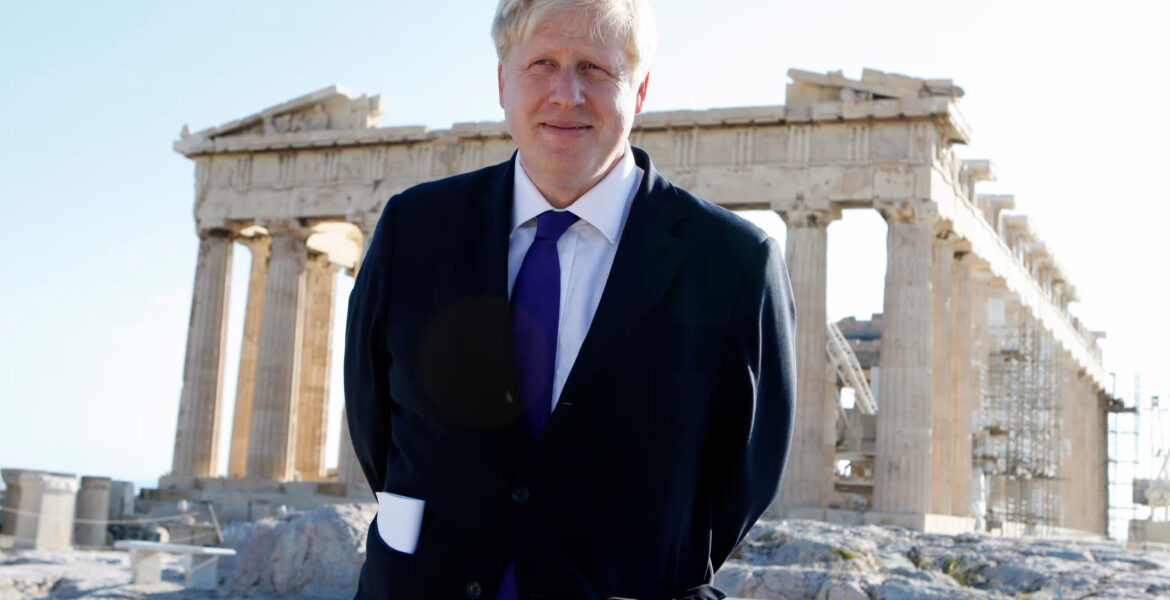Excited at the prospect of AI technology deciphering ancient texts, former British Prime Minister Boris Johnson reminded readers in his recent Daily Mail column that Greece and Rome continue to shape the modern world.
Johnson made the references to the ancient world while expressing excitement on how with the help of British technology and Artificial Intelligence, scientists are now able to decipher some 1,800 badly burnt scrolls of Herculaneum that were destroyed almost 2,000 years ago by the eruption of Mount Vesuvius.
"And if we can read these 1,800 badly barbecued scrolls, we may be about to reveal some of the greatest missing masterpieces of literature." enthused Johnson.
"They made us, my friends. It was Greece and Rome – the classical world – that laid the foundations of our modern world.
"You are reading these words in a semi-Latinate language; you are living in a democracy, whose founding idea was born in Greece.
"Your home, large or small, will be full of cornicing and pediments and architraves and other barely noticed inheritances from the classical canon of architecture.
"You watch multi-episode TV revenge plots and family psychodramas that have their origins in the works of Aeschylus and Sophocles and Euripides.
"Wherever you live in the West – in Europe or the Americas or Australasia – you are the cultural and intellectual descendant of Greece and Rome, whether you acknowledge the fact or not; and that is because it was those great cultures that inspired the Renaissance – literally the rebirth of the ancient world.
"It was the Renaissance that led to the Enlightenment and the political, commercial and technological rise of the modern West, whether you speak of the G7 or the OECD countries that still account for the vast bulk of humanity’s wealth and innovative power.
"That sequence was in itself something of a miracle, because there was a terrible interruption between the ancient world and the Renaissance.
"They called it the Dark Ages, which followed the Fall of Rome; and in those Dark Ages, the legacy of the Greek and Roman cultures was very nearly lost. The Renaissance only happened because there was a sudden revival of interest, beginning in Italy, in the thought and writings of the ancient world.
"They began to dig out the texts – mouldy and moth-eaten – that had been all but lost to European memory. They rootled around in monastery libraries. The Crusaders brought them back from Byzantium, where they had been conserved by monks.
"Slowly, they translated and spread them, and in England those texts became the foundation of our early modern or Elizabethan culture.
"Shakespeare himself feasts on the great banquet of Plutarch and Ovid and others, and without his knowledge of the classics he might have been great, but he would not have been the Shakespeare we know.
"And even Shakespeare, relatively learned though he was, had access to only a tiny fraction of the corpus of Greek and Latin literature, because so much had already been destroyed. From time to time, in the last few hundred years, we have recovered a few fragments – such as the scraps of poetry on the backs of laundry lists, preserved in the dry sands of Egypt. But the gaps remain, and they are achingly vast.
"Take Sappho, the lovelorn lesbian of Lesbos. She was so famous in the ancient world, and so revered, that they called her the tenth Muse; and what we have is indeed very beautiful.
"But we have only one complete poem by Sappho; and as for those more recent fragments from Oxyrhynchus in Egypt, they are so full of square brackets — where there are words missing — that it is sometimes hard to tell if she is lusting after a boy or a girl (it’s generally a girl).
"Or take Aeschylus. Only a handful of his 90 plays survive – but the influence of what we have has been colossal. Seven Against Thebes has inspired everything from the Seven Samurai to the Magnificent Seven to the music of The Clash.
"What if we find his other 80-odd plays, or Homer’s allegedly obscene Margites, or Aristotle on Comedy? So much has just vanished, so much that could change our view of the ancient world.
"So when we hear of a vast library of texts, just waiting to be unlocked, the excitement is enormous because it is astonishing that we have this library at all." writes the very excited philhellene, Boris Johnson.



